Table of Contents
Introduction to African Dress Fashion
African dress fashion is a celebration of diversity, heritage, and identity. With its bold patterns, vibrant colors, and unique silhouettes, African fashion has transcended borders and become a global sensation. What’s fascinating about African dress fashion is how it weaves culture and history into every thread, giving wearers not just a stylish outfit but a meaningful one. Let’s explore how African dress fashion has evolved over time and continues to shape global trends today.
The Historical Significance of African Clothing
African clothing has always been more than just fabric. It’s a statement of identity, culture, and status. Throughout history, African communities have used clothing to communicate everything from social standing to marital status.
Traditional Garments and Their Meanings
In many African cultures, clothing is deeply symbolic. For instance, certain patterns or colors can denote one’s age, occupation, or even lineage. The Yoruba people of Nigeria wear the “Aso Oke,” a handwoven fabric, for important events like weddings and funerals, symbolizing status and respect.
Symbolism in African Dress Patterns
Patterns in African clothing are often inspired by nature, history, or mythology. For example, the intricate geometric patterns on Kente cloth from Ghana represent concepts like wisdom, creativity, and leadership. Every piece tells a story, making African dress fashion not just a style statement but a form of storytelling.
Evolution of African Dress Fashion
African dress fashion has evolved, influenced by both external forces like colonization and internal movements that celebrate African pride and independence.
Colonial Influence on African Clothing
During colonization, Western styles started to infiltrate African fashion. Traditional garments were replaced or blended with Western attire, leading to hybrid styles. However, African fashion still maintained its distinct flair, incorporating indigenous patterns and fabrics.
Post-Independence Revival of Traditional Styles
After gaining independence, many African nations experienced a revival of traditional dress. Designers began blending the old with the new, creating styles that honored their heritage while also embracing modernity.
Iconic African Fabrics in Fashion
When we talk about African fashion, it’s impossible not to mention the fabrics that make it so unique. These fabrics aren’t just beautiful; they’re rich in history and meaning.
The Timelessness of Ankara Fabric
Ankara, a vibrant, wax-printed cotton fabric, is perhaps the most recognized African fabric globally. Known for its bold colors and eye-catching patterns, Ankara has been embraced by designers worldwide. It’s a staple in African fashion and is used to make everything from dresses to accessories.
Kente Cloth: A Symbol of Royalty
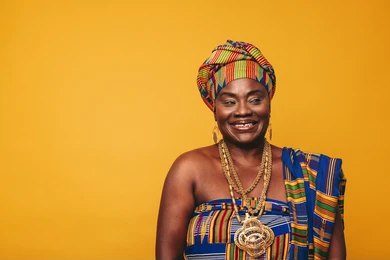
Originating from Ghana, Kente cloth is often associated with royalty and sacred events. The vibrant, multi-colored strips of fabric are woven together to create striking patterns, each with its own symbolic meaning.
Dashiki: A Blend of Tradition and Modernity
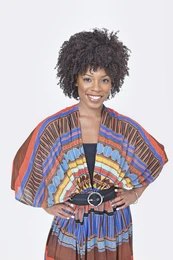
The dashiki, with its loose fit and ornate embroidery, has become a symbol of African pride. Originally from West Africa, this unisex garment has become a fashion statement globally, worn both casually and for special occasions.
Popular African Dress Styles for Women
African women’s fashion is diverse, ranging from elegant traditional dresses to modern, form-fitting designs. Here are some of the most popular African dress styles for women:
The Boubou Dress: A Flowing Statement of Elegance
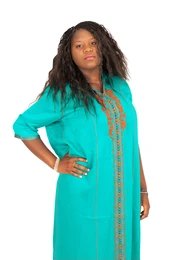
The boubou is a flowing, wide-sleeved garment worn by women across West Africa. Known for its comfort and elegance, it’s perfect for both casual and formal occasions. The loose silhouette allows for intricate patterns and embroidery, making it both functional and stylish.
The Wrapper: A Versatile and Chic Look
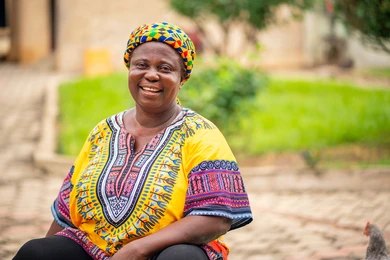
The wrapper is a large piece of fabric that’s wrapped around the body, worn by women in many African countries. This versatile garment can be styled in multiple ways, making it a go-to for many women seeking both comfort and fashion.
Peplum Dresses: Mixing Tradition with Trend
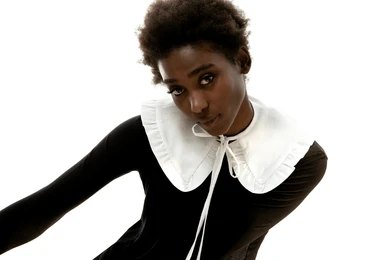
The peplum dress has become a popular fusion of modern fashion with traditional African designs. The flared overskirt adds a feminine touch to the dress, while the Ankara or Kente fabric gives it that authentic African flair.
African Dress Fashion for Men
African men’s fashion is equally dynamic, offering both traditional and contemporary styles that exude confidence and pride.
Agbada: The Ultimate Symbol of Prestige
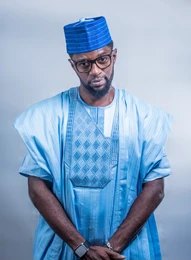
Agbada is a voluminous, flowing robe worn by men in West Africa. Traditionally, it’s reserved for special occasions like weddings and ceremonies. With its intricate embroidery and regal appearance, Agbada is a true symbol of prestige.
The Dashiki: A Cultural Icon
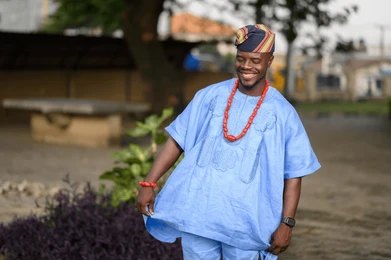
The dashiki isn’t just for casual wear. This garment, often adorned with embroidery around the neckline, can be styled for formal events as well. It’s comfortable, stylish, and rich in cultural significance.
Kaftan: Effortless Style for Every Occasion
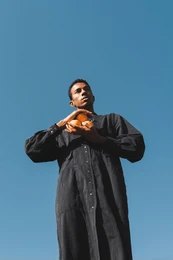
The kaftan is a long, flowing garment worn by men across Africa. Its versatility allows it to be worn both casually and formally, and it’s known for being both comfortable and chic.
The Role of African Fashion Designers in Global Trends
African fashion designers are making waves on the global stage, breaking barriers and gaining recognition for their unique contributions to fashion.
Breaking Barriers and Gaining Recognition
Designers like Nigeria’s Lisa Folawiyo and Ghana’s Ozwald Boateng have gained international acclaim for their bold, innovative designs that merge African traditions with contemporary fashion.
African Designers Influencing the Global Runway
From Paris Fashion Week to the streets of New York, African fashion designers are leaving their mark on global fashion. Their work is not only celebrated for its beauty but also for its cultural significance.
How African Dress Fashion Promotes Sustainability
African fashion is often rooted in sustainability, with many designers prioritizing eco-friendly practices.
Embracing Handmade and Locally Sourced Fabrics
Many African fashion houses use locally sourced fabrics and handwoven materials, reducing their carbon footprint. This focus on sustainability is not only good for the planet but also supports local artisans.
Ethical Production Methods in African Fashion
In addition to using sustainable materials, many African fashion designers prioritize fair wages and ethical production practices, ensuring that the workers who create these beautiful garments are treated fairly.
African Dress Fashion for Special Occasions
From weddings to festivals, African dress fashion plays a huge role in special occasions.
Wedding Attire: A Blend of Tradition and Glamour
African weddings are known for their vibrant attire. Brides and grooms often wear matching traditional outfits made from fabrics like Kente or Ankara, adorned with intricate patterns and beadwork.
Festive Dresses for African Ceremonies
Whether it’s a birthday, a religious ceremony, or a cultural festival, African fashion is always at the center of the celebration. The bright colors and bold designs make every event a visual feast.
How to Style African Dresses in Everyday Wear
African fashion isn’t just for special occasions. Here’s how you can incorporate it into your daily wardrobe.
Incorporating Modern Accessories with Traditional Garments
Adding modern accessories like belts, jewelry, or stylish shoes can elevate your traditional African dress, giving it a contemporary twist.
Casual African Styles for Day-to-Day Fashion
African fashion offers plenty of casual options, from Ankara skirts paired with simple tops to dashikis worn with jeans. These styles are perfect for everyday wear while still making a statement.
Conclusion: The Global Appeal of African Dress Fashion
African dress fashion has gained global appeal, not just for its beauty but also for the deep cultural significance behind each piece. Whether it’s the bold patterns of Ankara, the elegance of a boubou, or the prestige of Agbada, African fashion continues to influence and inspire designers worldwide. Its sustainability practices and rich heritage make it more than just fashion—it’s a movement that connects the past, present, and future of African culture. Visit Glamour Script Homepage for More Articles .
FAQS
What are the most popular African fabrics used in fashion?
Ankara, Kente, and Dashiki are some of the most popular African fabrics known for their bold colors and intricate patterns.
How do I style African dresses for modern wear?
You can add modern accessories like belts or statement jewelry to give traditional African dresses a contemporary look.
Can African fashion be worn for formal occasions?
Absolutely! Many African garments, like Agbada and Kente, are designed for special occasions like weddings and festivals.
What makes African fashion sustainable?
African fashion often uses locally sourced, handmade fabrics and prioritizes ethical production practices, making it an eco-friendly choice.
Are African dress patterns symbolic?
Yes, many African dress patterns hold cultural and historical significance, representing concepts like wisdom, royalty, and community.

















































